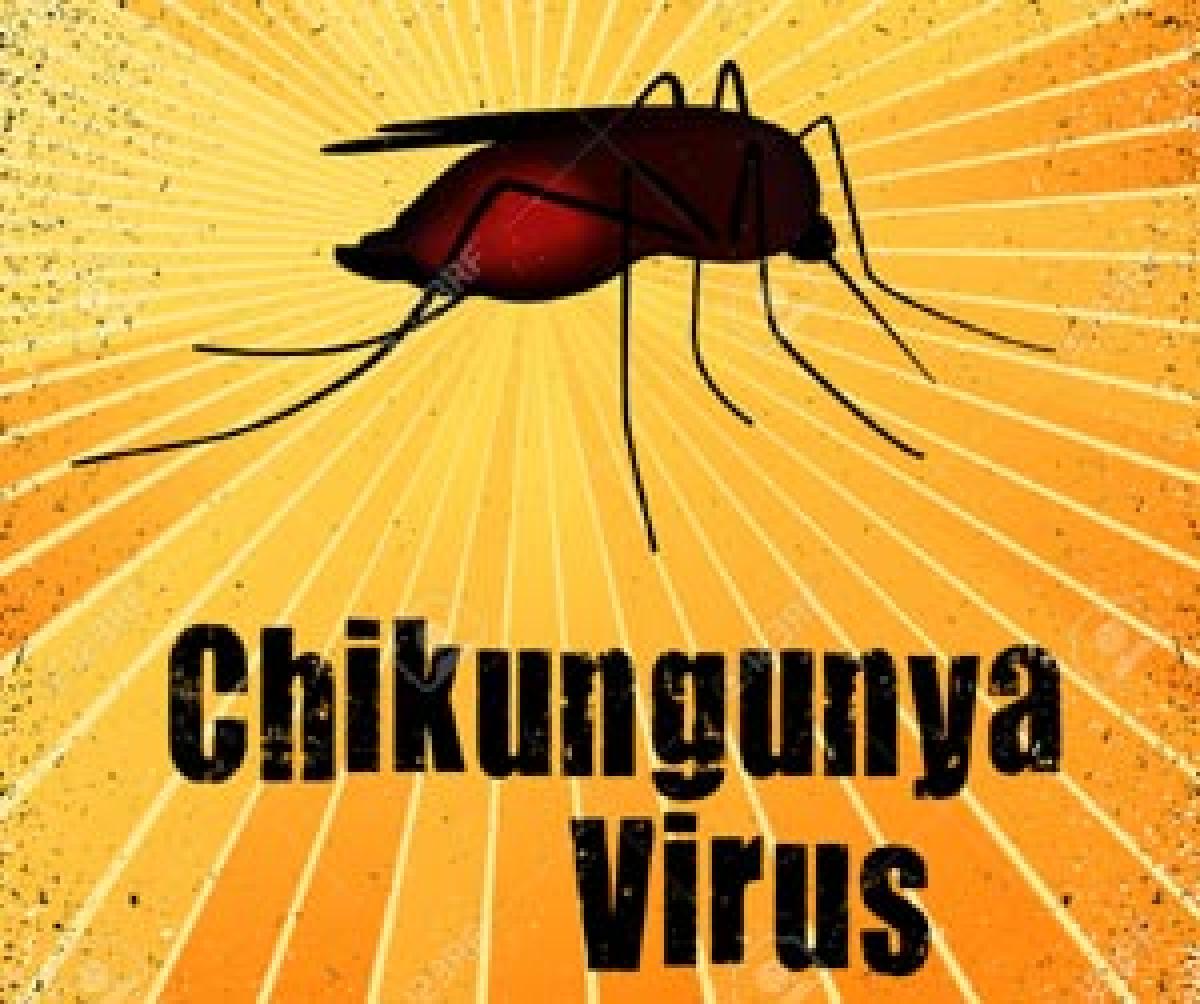Live
- A year of political earthquake
- Penugonda stresses need for cultural renaissance
- IG inspects police stations at Chirala, Karamchedu
- Sandard Glass raises Rs40 cr in pre-IPO deal
- Options data flags rising volatility
- Contrarians in sight amid low volumes-led pull back rally
- ‘Ksheera Sagara Madhanam’ enthrals audience
- Nifty back below 200EMA/ 200DMAs
- US Navy shoots down own jets over Red Sea
- Nara Devansh sets world record in chess
Just In

Researchers in New Delhi have found that \"Aedes aegypti\" mosquitoes that transmit the chikungunya virus pass it on to their offspring a feature that allows these mosquitoes to maintain the virus within their population for generations.
Researchers in New Delhi have found that "Aedes aegypti" mosquitoes that transmit the chikungunya virus pass it on to their offspring a feature that allows these mosquitoes to maintain the virus within their population for generations.
In other words, mosquitoes emerging from eggs laid by infected Aedes also carry the virus, thus enabling the virus to keep circulating in nature. A team from the International Centre for Genetic Engineering and Biotechnology (ICGEB), National Institute of Malaria Research and the Indian Council of Medical Research (ICMR) has reported this finding in the reputed journal 'Acta Tropica.'
"Called transovarian transmission (TOT) or vertical transmission, this is an important feature by which viruses survive in nature until they reach a population large enough to infect human population," Sujatha Sunil, head of Vector Bourne Diseases Group at ICGEB and principal investigator of the study, told.
TOT, in which a virus spreads from mosquito to mosquito, is known to occur in the case of yellow fever virus which is also transmitted by A. aegypti mosquitoes.
"However, there have been no reports on TOT of chikungunya virus in field samples till date," Sujatha said. "The present pilot entomological survey is the first study to confirm this feature in natural population of Aedes mosquitoes."
In their study, female Aedes mosquitoes collected from the field -- that tested positive for the chikungunya virus -- were fed uninfected blood in the laboratory and allowed to lay eggs. The progeny that emerged from these eggs were tested and found positive for chikungunya virus, "thus clearly establishing the prevalence of vertical transmission of chikungunya virus in A. aegypti natural populations," the scientists reported.
Understanding vertical
transmission
Information on vertical transmission of chikungunya virus in natural population of Aedes mosquitoes is important to understand the possible mechanisms of virus survival during inter-epidemic periods, the report said.
By confirming the presence of TOT, the "study has provided insights as to the mode by which the chikungunya virus may exist in the population during adverse climatic conditions," Sujatha said.
For instance, she noted, the pilot survey carried out in Delhi and neighbouring Haryana has revealed that Aedes mosquitoes survive even during peak summer season and their population "explodes quickly once the monsoon starts".
"Therefore it is very crucial to initiate vector surveillance and control programmes well before the monsoon actually starts," the scientists said in their report.
They said their study has further demonstrated the importance of identifying permanent breeding sites for proper Aedes species control. "Identification of such sites and timely control of mosquito population in these sites before the onset of monsoon will prove to be extremely important in vector control programmes," the report said.
But if TOT is taking place in nature, why chikungunya epidemic is not occurring throughout the year?
Sujatha said mosquito population is the deciding factor for disease transmission. "During non-rainy season, the habitats and breeding of the mosquitoes are greatly curbed and the number of mosquitoes is very low. This automatically translates to lesser cases of chikungunya," Sujatha said.

© 2024 Hyderabad Media House Limited/The Hans India. All rights reserved. Powered by hocalwire.com







